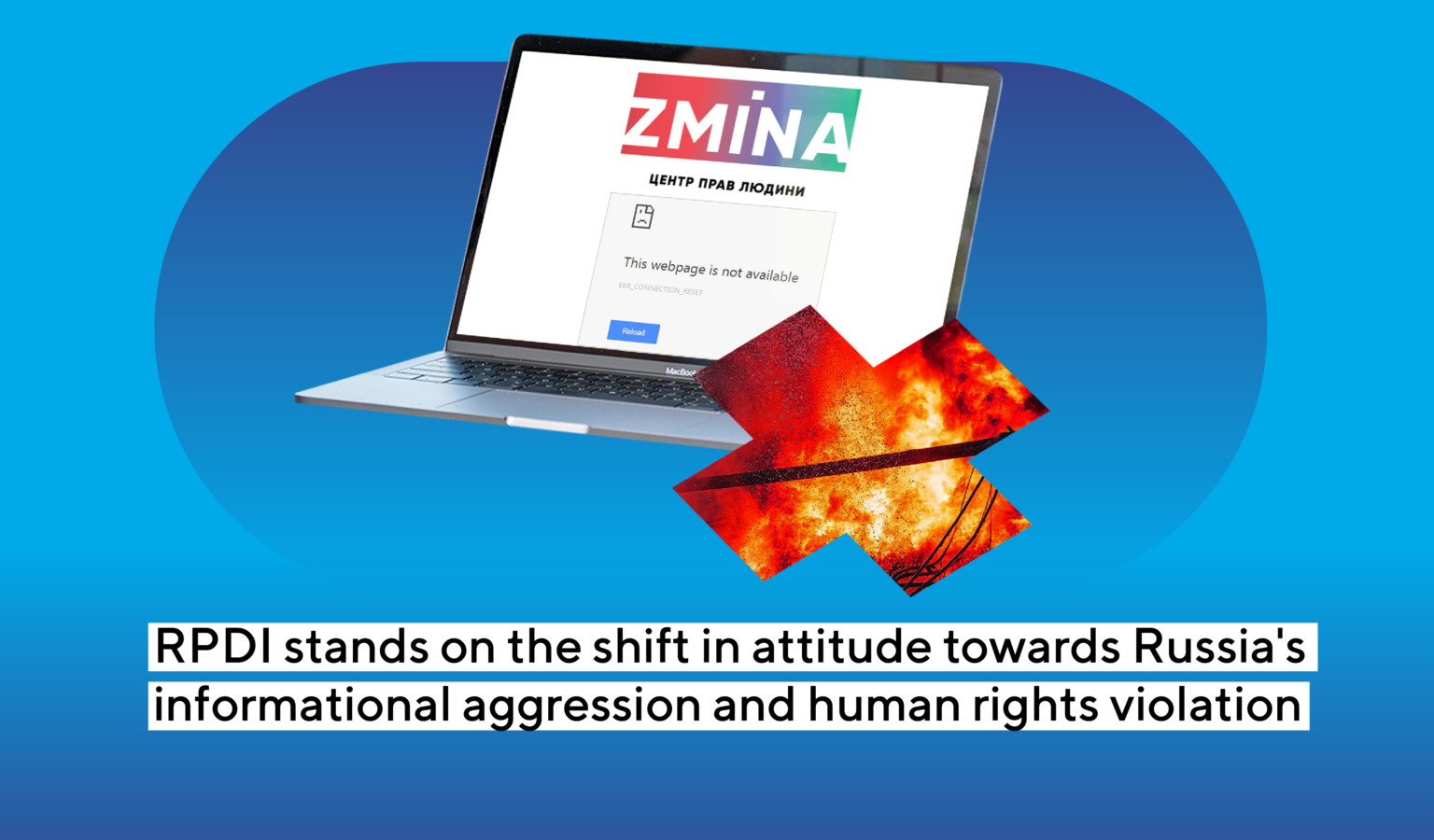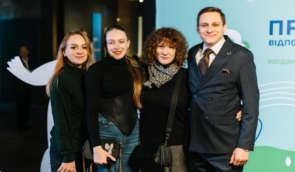Regional Press Development Institute stands on the shift in attitude towards Russia’s informational aggression and human rights violation
In March-April 2022, the Russian Federation used the usual tactic of “information cleansing” in the temporarily occupied territories. Ukrainian resources сovering the truth about the war were blocked and entered into the register of banned websites. RPDI is working with one such precedent and hopes for a revolutionary judgment of the European Court of Human Rights. Here is a walkthrough of how the lawsuit was filed by Human Rights Centre ZMINA and why the world’s attitude to aggression not only on the battlefield but also in the violation of human rights should change.

Step 1 – The editorial office noticed their website was blocked
From ZMINA’s experience, Roskomnadzor had not sent any warnings or messages to the editors, so it is not known for sure which publications caused the site to be banned.
When the resource launched a Russian-language version and actively covered the Russian-Ukrainian war, the number of readers from the Russian Federation increased fourfold. It was with a decrease in traffic from the aggressor state and temporarily occupied territories that ZMINA suspected of blocking, and then their suspicions were confirmed by the residents of Crimea.
Step 2 – ZMINA turned to media lawyers
A working group was filing the ZMINA Centre’s complaint to the ECHR. Its members include RPDI media lawyers Lyudmyla Pankratova, Oksana Maksymeniuk and Vira Krat, international lawyer Serhiy Zayets, as well as lawyers at the European Human Rights Advocacy Centre (EHRAC). On January 19, we received the news that the case had been registered.
“We hope that this will become a precedent for all those media that experienced blocking in the temporarily occupied territories. The case has only been registered at the ECHR, so a long review and struggle lie ahead, but we have every reason to believe that such blocking is incompatible with democratic values and is a politically-motivated violation,” RPDI Legal Affairs Head Oksana Maksymeniuk explains.
Step 3 – We are waiting for a precedent (“We are here”)
Of course, we have to wait for the ECHR decision, but this case’s importance can be thought through ahead. What do the Ukrainian website blockings in Crimea and other temporarily occupied territories mean?
EHRAC lawyer, Camilla Alonzo, is convinced: “ZMINA’s case is of particular significance as it concerns the Russian authorities’ application of Russian law to the occupied territory of Crimea, and their attempts to prevent the legitimate dissemination of information by a Ukrainian NGO to individuals in Ukrainian sovereign territory.”
By blocking independent media reporting on war, the aggressor state attempts to censor and control the narrative around the invasion.
The head of ZMINA Tetiana Pechonchyk believes that the site was blocked due to many years of informational and human rights activities, coverage of human rights violations in the occupied Crimea since the end of February 2014, as well as publications about the grave consequences of Russian full-scale aggression, war crimes and crimes against humanity.
Step 4 – After the judgment of the European Court of Human Rights ruled, we hope for a “domino” effect and relevant resolutions from international institutions
The investigation agency Slidstvo.Info, Radio Liberty, Krym.Realiyi, Voice of America, etc. have a similar experience of blocking. RPDI Executive Director Lyudmyla Pankratova believes that the decision of ECHR in ZMINA’s case should be a revolutionary one, form a new Court practice and become a starting point for launching new policies of international organizations.
Lawyer Serhii Zayets notes that Russia violated its international obligations not only by launching the armed aggression against Ukraine but also by creating obstacles for human rights information to be spread: “The lawyers who worked on ZMINA case are convinced that the future decision of ECHR will push the boundaries of Court’s existing practice.”
Source: Regional Press Development Institute
If you have found a spelling error, please, notify us by selecting that text and pressing Ctrl+Enter.















